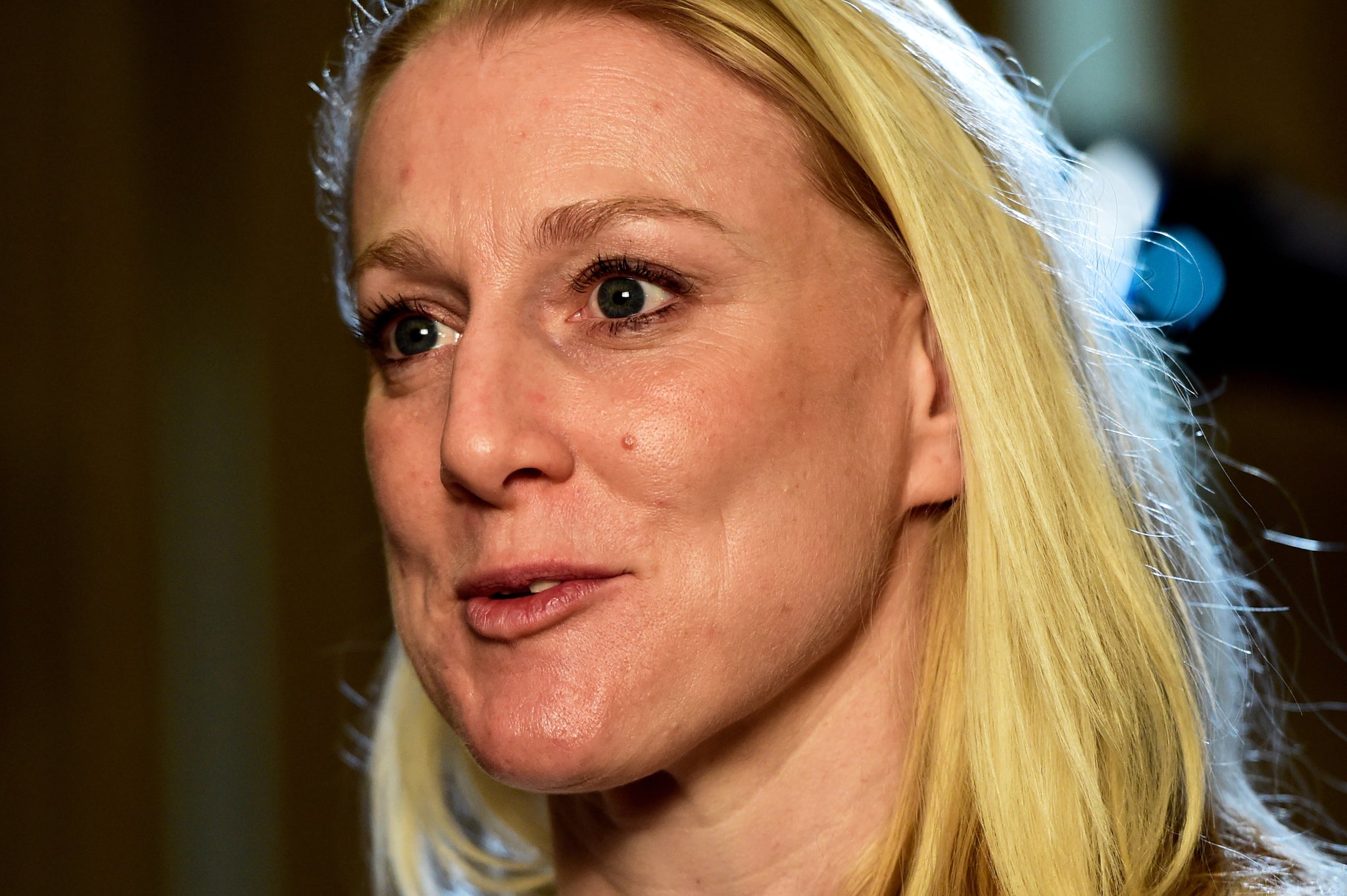You can tackle and still be a woman, says England star Tamara Taylor
England’s new captain discusses challenging the tomboy stereotype

England’s women begin the Six Nations against Wales next weekend under temporary management, with a raft of players syphoned off for sevens duty and coping with half a dozen post-World Cup retirements. Oh, and there will be a new captain leading them out.
In a decade of international selection, second-row Tamara Taylor has been capped 78 times, played in three World Cups, latterly as a winner, and at 33 thought she had ticked all her boxes. Then along came fate and the captain’s armband.
In dimension and appearance, 5ft 11in in her stocking feet and with a shock of blonde hair, Taylor conforms to the Amazonian stereotype. And in the age of the professional athlete – or partially so in the case of England’s women – an already impressive physique is augmented by the gym experience.
Taylor might present a challenge to the traditional view of femininity, until you are placed in her company, at which point her eloquence for the participation of women in a sport as hostile as rugby sweeps aside any casual preconceptions.
“The stereotype and culture we are in says making a tackle isn’t feminine, when all it is is a physical act, grabbing hold of someone and putting them on the floor,” she says. “Just because you do that, it doesn’t mean you can’t be a woman, put on your high heels and a dress.
“The human body, whether it be male or female, is equipped to get stronger and fitter. Apart from it being necessary to be fit to play rugby, you are going to be healthier long- term so the messaging is positive.
“The gym might be traditionally associated with men and training, particularly weight training, but again, this is changing,” she adds.
“In the media the more athletic figure is becoming more accepted, so it’s okay for women to have some muscles these days. Genetically you are never going to be able to compare the male and female athlete. There are so many differences. But we are not playing against men. We are playing like for like and we don’t work any less hard than men.
“I think it is fantastic that times are changing. You can play rugby without automatically being thought of as a tomboy. It is about breaking down what people are used to. People are not used to seeing women running around playing rugby, but the more people see it, the more normal it will become. We are getting there slowly.”
Slowly, indeed. The screens dotted about London’s Hurlingham Club for the Six Nations launch last week featured show-reels of men in action but not of the women.
Despite the changes visited on the red-rose set-up with the exit of coach Gary Street and the introduction of professional contracts for the sevens squad, Taylor could not be more optimistic about England’s Six Nations prospects, and is thrilled with the honour bestowed upon her in the absence of the World Cup- winning captain Katy McLean, one of a dozen players on sevens duty in Brazil, where the Olympic event makes its debut next year.
“To be asked to captain any team is an honour,” she says. “I’m like a little puppy wandering around really excited. It is fantastic to be part of a day like this [at Hurlingham]. I’ve been captain at my club for many years, but this is just an amazing experience, to think it is me on this stage representing all the girls.
“I would love to win the Six Nations. That is the next challenge, and it would be nice to win it as world champions. We have had six players retire, the sevens set-up take shape, a lot of new girls have come in and the coach has departed so it’s all change in the squad.
“It will be different. I have been coached by Gary [Street] for a long time. Change will always impact because you get used to having people around but it’s very exciting. We will just focus on the Six Nations.”
The partial introduction of central contracts is a measure of progress while simultaneously a barometer of the distance still to travel to establish the commercial viability of women’s rugby.
“There is a limited pot. The sevens is an Olympic sport so it is a bit different. So far it has not been divisive. It’s very new. From my point of view, I played in a World Cup with half the team contracted. I think 12 out of the 20 were centrally funded but it didn’t feel any different. We were all representing England at the end of the day.
“I have not known any different. I have always taken time out for training. So I didn’t notice anything out of the ordinary. At some point you would expect the whole squad to be fully funded. That comes with media interest. If there is enough out there then people will sponsor us and we will evolve like the men’s game did. One day we will get there but I’m not sure I still will be around.”
The needle is shifting. England’s World Cup triumph in France gained some welcome broadcast traction. If the cameras turn up there is, according to Taylor, an audience waiting to tune in.
“People have come up to me and said I saw you. They had all watched the final, boys and girls. The fact that there were nine-year-old boys out there who asked dad to put the final on TV was great and shows how far the game has come.”
Subscribe to Independent Premium to bookmark this article
Want to bookmark your favourite articles and stories to read or reference later? Start your Independent Premium subscription today.

Join our commenting forum
Join thought-provoking conversations, follow other Independent readers and see their replies